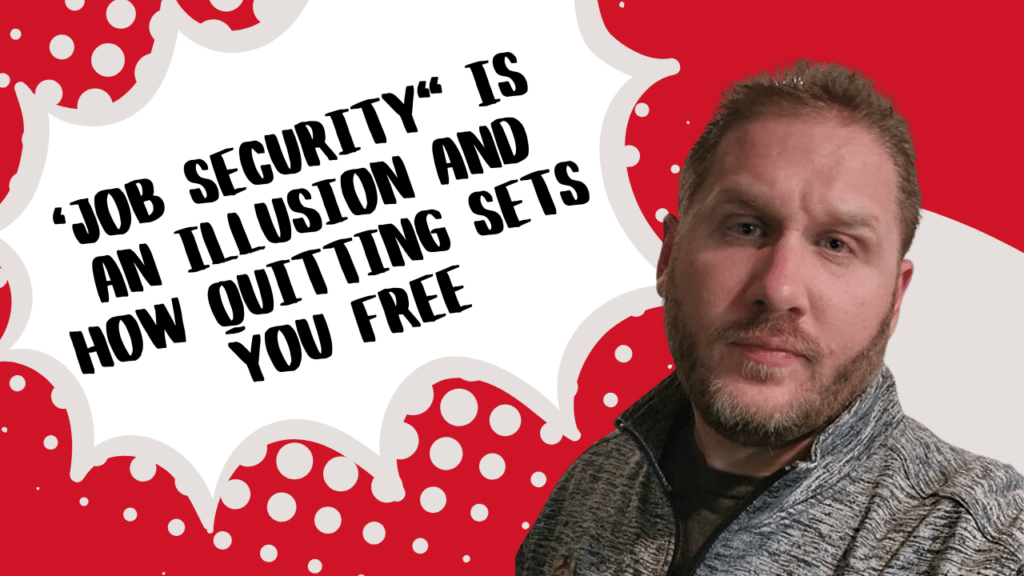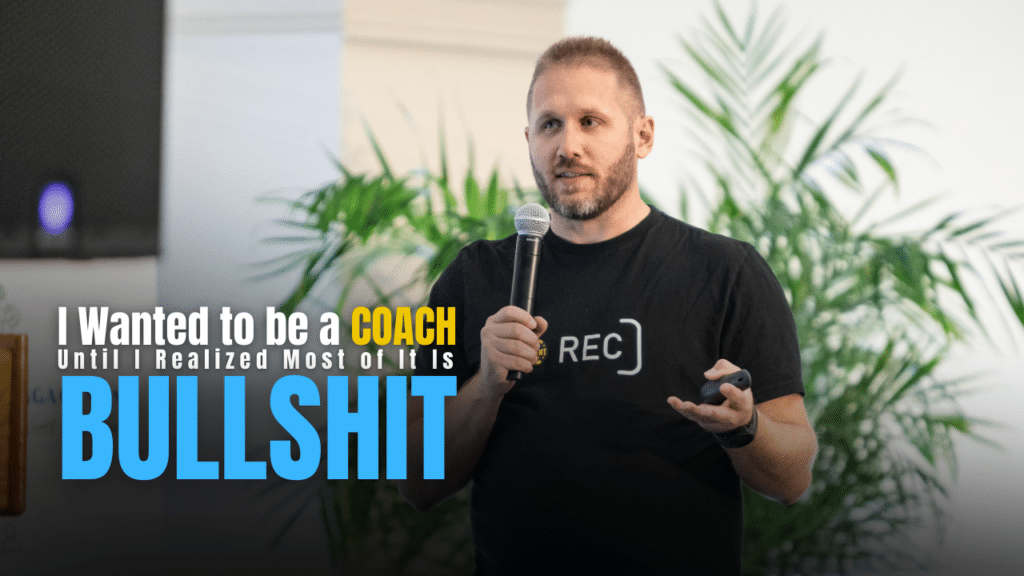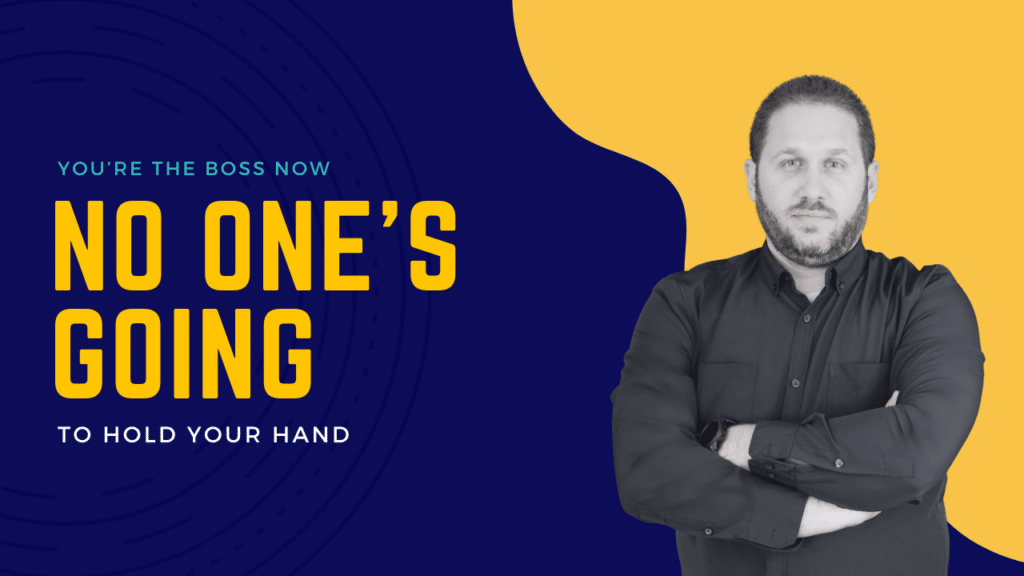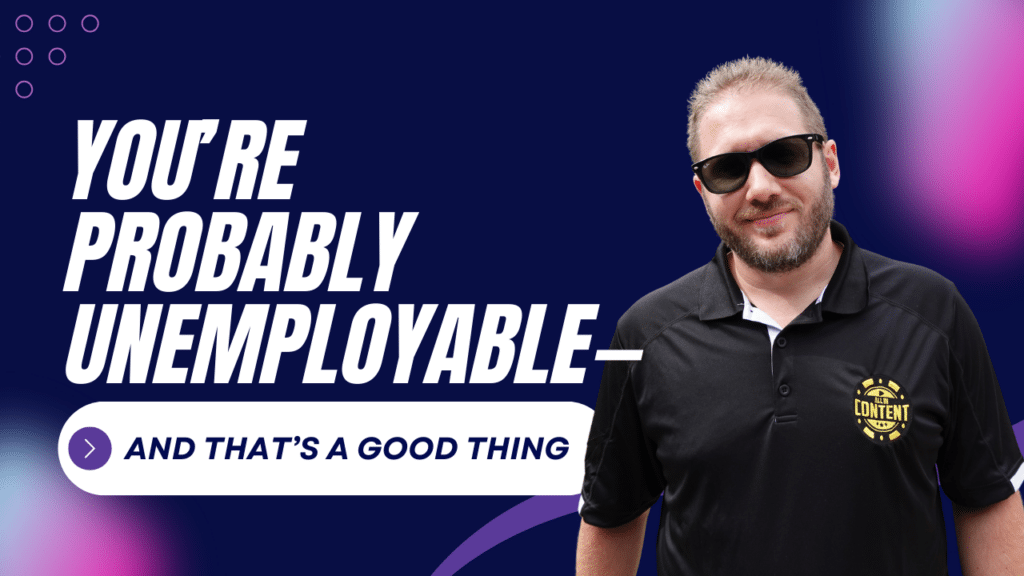For decades, society has sold us on the idea of job security: a steady paycheck, benefits, and a pension waiting for you at the end of a long, loyal career. But here’s the cold, hard truth: job security doesn’t exist.
Companies downsize. Industries collapse. AI replaces workers. And that “secure” job you’ve been clinging to? It can vanish with a single meeting.
If you’ve been feeling stuck in your 9-to-5, questioning whether you’re trading your freedom for a false sense of security, you’re not alone. Quitting might feel terrifying, but it’s often the most liberating—and secure—move you can make.
The Lie of Job Security
Let’s start with the basics: job security isn’t real. Here’s why:
- You’re replaceable: No matter how good you are, layoffs and automation don’t discriminate.
- You don’t control the rules: Your employer decides your salary, workload, and schedule.
- Loyalty doesn’t pay: Staying at a company out of loyalty often means stagnation and underpayment.
The illusion of security keeps people stuck, miserable, and afraid to take risks.
What Real Security Looks Like
Real security isn’t about relying on someone else to pay you—it’s about betting on yourself. Here’s what true security looks like:
1. Multiple Streams of Income
When you build a business or side hustle, you’re not dependent on one paycheck. You create opportunities to earn from multiple sources.
2. Skills That Transfer Anywhere
Entrepreneurship forces you to learn sales, marketing, negotiation, and problem-solving—skills that make you invaluable in any context.
3. Control Over Your Time
Quitting the 9-to-5 lets you decide when, where, and how you work. That’s real freedom.
The Corporate Job Trap
If you’ve ever thought, “I should just be grateful I have a job,” congratulations—you’re in the corporate job trap.
Here’s how it works:
- You’re overworked and underpaid, but you convince yourself it’s “safe.”
- You hate Mondays, live for weekends, and spend most of your time daydreaming about freedom.
- You feel guilty for wanting more, so you stay put.
Sound familiar? This is exactly how corporations keep you stuck.
The Upside of Quitting Your Job
Leaving your 9-to-5 might feel risky, but the potential rewards are massive:
- You Discover What You’re Capable Of
When you quit, you’re forced to figure things out. This builds resilience, confidence, and creativity. - You Set Your Own Ceiling
In a corporate job, your earning potential is capped. As an entrepreneur, the sky’s the limit. - You Reclaim Your Time
No more asking for permission to take a vacation or leaving early to pick up your kids. - You Align with Your Purpose
Quitting allows you to focus on work that feels meaningful, fulfilling, and aligned with your values.
How to Quit Without Falling Flat
Quitting doesn’t mean diving in blindly. Here’s how to make the leap responsibly:
1. Build a Financial Runway
Save 6-12 months’ worth of expenses to cover your transition period.
2. Start with a Side Hustle
Test your business idea or freelance skills while still employed to build confidence and cash flow.
3. Create a Plan
Outline your goals, milestones, and actionable steps for the first six months of self-employment.
4. Cut the Cord
Once you’re ready, leave with confidence. Burn the boats and commit fully to your new path.
The Risks of Staying in a Job You Hate
Think staying in your job is the safer bet? Think again. Here’s what you’re risking by staying:
- Your happiness: The longer you stay, the more resentful and disengaged you become.
- Your health: Stress, burnout, and the toll of a toxic environment can wreak havoc on your well-being.
- Your potential: By staying safe, you’re limiting your growth and settling for mediocrity.
FAQs
What if I’m scared to quit my job?
Fear is normal. Start small by building a side hustle and saving money to reduce the risk.
Isn’t it irresponsible to leave a steady paycheck?
It’s more irresponsible to stay in a job that drains you and prevents you from reaching your full potential.
How do I know if I’m ready to quit?
You’re ready when you’ve saved enough, tested your business idea, and feel prepared to commit fully to your new path.
What if I fail after quitting?
Failure isn’t the end—it’s part of the process. Learn, adapt, and keep moving forward.
How do I deal with judgment from family or friends?
Remember, their fears are not your fears. Surround yourself with people who support your vision.
Can I ever go back to a corporate job if entrepreneurship doesn’t work out?
Absolutely. The skills you’ll gain as an entrepreneur make you more valuable in any career.
Conclusion: A Personal Note from Chris
Quitting my corporate job was one of the scariest—and best—decisions I’ve ever made. I had all the usual fears: What if I fail? What will people think? Can I really make this work? But deep down, I knew the bigger risk was staying.
The truth is, job security was never real. The only real security comes from betting on yourself, building something that’s yours, and taking control of your future.
When I finally took the leap, I discovered something incredible: freedom. Freedom to work on my terms, chase my passions, and create a life that felt truly mine. Was it easy? Hell no. Was it worth it? Absolutely.
If you’re stuck in a job that’s sucking the life out of you, let this be your wake-up call. The world needs what you have to offer—and the only way to share it is to take the leap.
Stop settling for “security” and start creating your own. You’ve got this.








